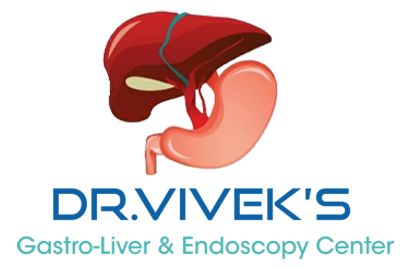Constipation occurs when bowel movements become less frequent and stools become difficult to pass. It happens most often due to changes in diet or routine, or due to inadequate intake of fiber. You should call your gastroenterology doctor in Mahabubnagar if you have severe pain, blood in your stools, or constipation that lasts longer than three weeks. Dr. Vivek Sagar Pallepagu is the best doctor for constipation and treats other stomach problems in Mahabubnagar having more than 10 years of experience.
Other key features that usually define constipation include:
- Your stools are dry and hard.
- Your bowel movement is painful and stools are difficult to pass.
- You have a feeling that you have not fully emptied your bowels.

The main symptoms of constipation are:
- Difficulty passing stool.
- Straining when passing stool.
- Passing less stool than usual.
- Lumpy, dry, or hard stool.
Other symptoms include:
- Pain and cramping in the abdomen
- Feeling bloated
- Nausea.
- A loss of appetite.
Damage that can arise as a result of severe constipation includes:
- Rectal bleeding after straining
- Anal fissure, which is a small tear around the anus
- Symptomatic hemorrhoids (piles), which are swollen, inflamed blood vessels in the anus.
- Fecal impaction, which occurs when dried stool stagnates and collects in the rectum and anus, potentially leading to a mechanical obstruction.
Eating a poor diet and not exercising are major risk factors for constipation. You may also be at greater risk if you’re:
- Age 65 or older. Older adults tend to be less physically active, have underlying diseases, and eat poorer diets.
- Confined to bed. Those who have certain medical conditions, such as spinal cord injuries, often have difficulty with bowel movements.
- A woman or child. Women have more frequent episodes of constipation than men, and children are affected more often than adults.
- Pregnant. Hormonal changes and pressure on your intestines from your growing baby can lead to constipation.
The following can help you avoid developing chronic constipation.
- Include plenty of high-fiber foods in your diet, including beans, vegetables, fruits, whole grain cereals and bran.
- Eat fewer foods with low amounts of fiber such as processed foods, and dairy and meat products.
- Drink plenty of fluids.
- Stay as active as possible and try to get regular exercise.
- Try to manage stress.
- Don't ignore the urge to pass stool.
- Try to create a regular schedule for bowel movements, especially after a meal.
- Make sure children who begin to eat solid foods get plenty of fiber in their diets.
Book an appointment for gastro liver endoscopy and consult constipation specialist in Mahabubnagar.
